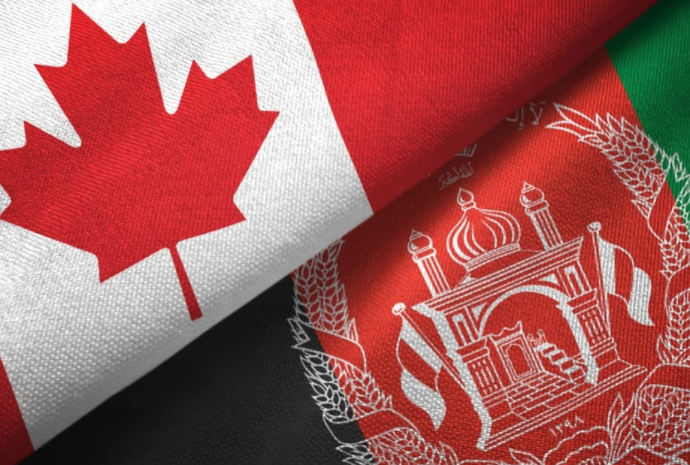A simple ministerial instruction from new Immigration, Refugees and Citizenship Canada (IRCC) Minister Sean Fraser could help Afghan nationals desperately seeking asylum but currently stuck in an endless processing backlog, according to one immigration lawyer.
Afghan refugees being sponsored privately must first be approved by the United Nations High Commissioner for Refugees (UNHCR). But according to Zool Suleman, who’s been practising immigration law for nearly three decades, the UNHCR is “overloaded, overworked, very stressed, and backlogged.”
“This is the big problem….There’s a big lineup with a big jam in the middle, which is the UNHCR, and the Canadian applicants who want to come here from Afghanistan are being stopped by that jam,” he told New Canadian Media.
“We can work around this jam by simply not requiring UNHCR approval…This is a major way to get around the processing backlog.”
According to IRCC data, as of the time of writing, only 3,325 Afghan refugees have arrived in Canada from the government’s announced target of 40,000. There are 9,945 applications approved out of 14,110 received.

Suleman’s comments come on the heels of an open letter from the World Refugee & Migration Council also urging the federal government to waive that requirement and “recognize the Afghan Crisis as a Prima Facie Refugee Situation.” It also calls for the clarification of who exactly qualifies under the concept of “assistance to Canada”; increasing human resources; and negotiating assurances from the Taliban with help from allies.
The letter is undersigned by 12 organizations, including Amnesty International Canada, the Canadian Association for Refugee Lawyers, and the Afghan Women’s Organization Refugee and Immigrant Services.
“Prime Minister and Ministers: this urgent situation requires an immediate, multi-faceted, and focused response,” it states. “Afghans at risk, such as female judges, are in hiding and are being actively pursued by released prisoners, Taliban officials, and ISIS-Khorasan.”
UNHCR backlog
In 2018, the UNHCR reported that it, and partner states “have, in the last few years, been facing an unprecedented caseload,” with processing capacity continuing to “fall far short of the needs.”
“In the most extreme cases, new applicants receive appointments for (Refugee Status Determination) interviews 5 years or more away. In such circumstances, RSD may become meaningless as a protection tool, especially in situations where people are not well protected as asylum seekers.”
It’s not clear exactly how many Canada-bound Afghan asylum seekers are stuck in UNHCR’s backlog.
While there has been a genuine desire to help Afghans, the government’s response has been “quite chaotic” and has lacked leadership, says Suleman, who contrasted this response to the Syrian one.
The UNHCR requirement was first introduced by former Conservative Prime Minister Stephen Harper, but it was waived by Prime Minister Justin Trudeau’s government during the Syrian crisis. This time, however, the requirement remains for Afghan refugees.
Suleman says between the Taliban’s unexpectedly quick takeover of Afghanistan, Canada’s recent national election, and over 20 months of pandemic-induced public fatigue, there’s been a “paralysis on how to move forward.”
“I don’t think it was well thought through,” he says of Canada’s strategy.
“I think this new (immigration) minister now has a chance to fix it. And my suggestion would be to fix it by removing the requirement for UNHCR approval first.”
Open letter
The open letter, published on Nov. 1, also calls for clarity around the definition of and qualification for its two programs for evacuating Afghan nationals: those who have provided “assistance to Canada” and the “accepted categories” section of the special humanitarian program.
In order to “meet the spirit” of the programs, the signatories want the government to “adopt an expansive interpretation” of both.
“The signatories further call upon Canada to clarify and fulfill its pledge to…support – meaningfully, practically, immediately – those who supported us…including women leaders, human rights advocates, persecuted religious or ethnic minorities, LGBTI individuals, and journalists who helped Canadian journalists.”
Canada has also partnered with human rights organizations in Afghanistan to help Afghan nationals find a way out.
However, those organizations “are largely focused on human rights defenders – and this has drastically narrowed the otherwise broad mandate of Canada’s programs,” according to the letter.
“Canada must clarify who specifically can apply through its programs and through the referral partners,” it states.
“Further, Canada must seek partnerships with other organizations on the ground in Afghanistan to ensure that individuals who otherwise meet the eligibility criteria for the special programs can be identified and processed.”
Leadership required
During the Syrian refugee crisis, Suleman says the Canadian government very clearly encouraged the public to support Syrian refugees. He says that clear messaging is not coming through this time around, and the result has been less public support.
Also unlike the Syrian crisis, which was utilized by Trudeau to “outmaneuver” Harper, Afghan refugees did not figure prominently into any of the parties’ platforms during the recent national election. This lack of leadership has left the public in the dark.
“The Canadian public doesn’t know what to do, and doesn’t have any clear pathways to help,” he says.
So, the time is now for the government to resolutely categorize the Afghan refugee crisis as a priority in order to galvanize public opinion in support of it.
“The one thing that is clear is that Canada has made promises to Afghan citizens…to help them and bring them to safety, and that promise is not being kept,” he says.
“At a minimum, what we need is some clarity…and we need to provide more attention and resources to this file.”
Asked if he had any indication the government was heading that way, Suleman says, “as of this interview, no.”
Fernando Arce is a Toronto-based independent journalist originally from Ecuador. He is a co-founder and editor of The Grind, a free local news and arts print publication, as well as an NCM-CAJ member and mentor. He writes in English and Spanish, and has reported from various locations across Canada, Ecuador and Venezuela. While his work in journalism is dedicated to democratizing information and making it accessible across the board, he spends most of his free time hiking with his three huskies: Aquiles, Picasso and Iris. He has a BA in Political Science from York University and an MA in Journalism from Western University.






[…] a foreign policy perspective, Canada hasn’t demonstrated leadership on the international stage regarding Russia’s perceived aggression, and it seems it can’t […]